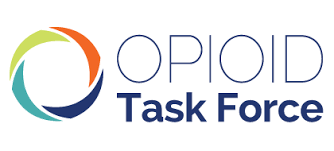A community collaboration model (i.e. coalition) in Western Massachusetts that provides a comprehensive action plan for the opioid problem, bringing together the vital stakeholders in a community
Established in 2013, the Opioid Task Force of Franklin County and the Northern Quabbin Region works to reduce heroin and prescription opioid addiction and prevent overdose deaths in its rural region of Massachusetts.
The Opioid Task Force includes a 20-member Executive Council and five working committees that focus on a range of initiatives in the areas of:
- education and prevention
- healthcare solutions
- law enforcement and justice
- housing and workforce development
- treatment and recovery
The Task Force partners with a wide range of public and private organizations to further its prevention, treatment, intervention and recovery goals.
Examples of Task Force efforts in these areas include:
- initiatives to provide and train a range of individuals in administering Narcan
- strategies to help rural health care providers reduce overprescribing of opioids
- support for syringe access programs and peer-led recovery programs
- expanding educational and training opportunities for individuals in recovery









